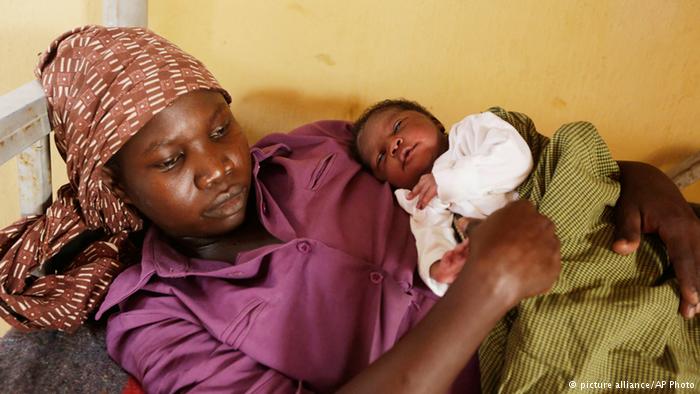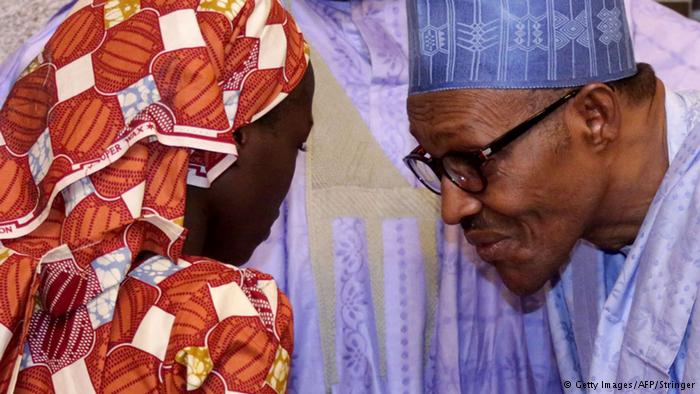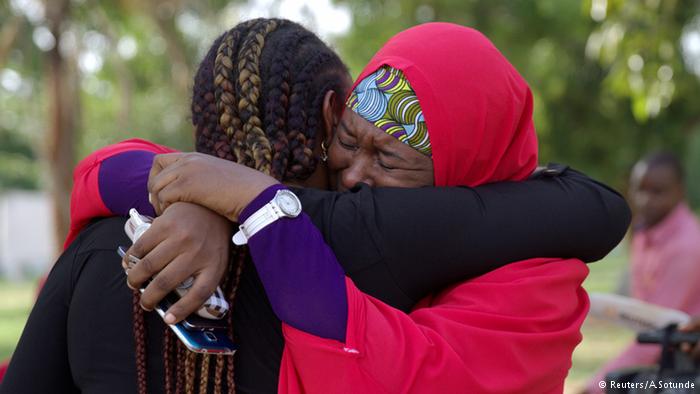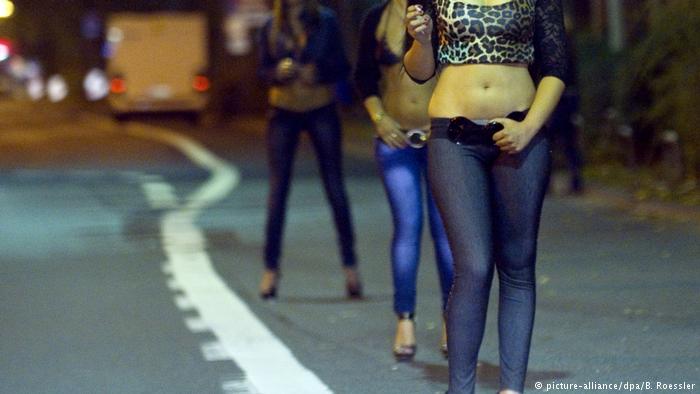Former Boko Haram captives face stigma, rejection in Nigeria
 There was huge relief after one of the missing Chibok girls was found. She is one of the many captives who have been set free from Boko Haram. But those freed face a tough time of re-integrating back into society.
There was huge relief after one of the missing Chibok girls was found. She is one of the many captives who have been set free from Boko Haram. But those freed face a tough time of re-integrating back into society.
The last few days seem to have been a bag of good and bad news for the Nigerian military. First, the army received a major morale boost after they paraded one of the missing Chibok girls who was found by a vigilante group roaming the vast Sambisa forest.
The news was quickly followed by another girl being freed, alongside many other women and children rescued from Boko Haram’s captivity by Nigerian troops, who are carrying out “Operation Sambisa Crackdown.”
The army then said she was another Chibok girl, but it turned out she was not. There are hundreds, if not thousands of people who for a period of time lived under the shadow of what has been described as the world’s deadliest terrorist group. An unknown number of people, including the more than 200 Chibok girls, are still being held by the Islamists.
This year, a report by the global children agency UNICEF, warned that freed Nigerian women and their children who were under Boko Haram’s control are being rejected by their communities.
The women and girls, who in most cases were raped by Boko Haram militants, forced to marry the fighters or work as domestic workers, return home only to discover they have now been labeled “annoba,” a Hausa word which roughly translates to “epidemics” or “Boko Haram wives.”
Fears of radicalization
Many residents fear that these women may have been radicalized by Boko Haram. They base their arguments on the rising numbers of suicide bombings that have been carried out by women and girls in recent months. Their rejection by the community is among several unintended consequences of the military’s recent successful bid to liberate territories previously held for months by Boko Haram.

President Buhari promised that Amina Ali (L) one of the Chibok missing girls would continue her education
Freed Nigerian women who had been held captive by Boko Haram are being rejected by their family and community due to fear that some of these girls and women were radicalized in captivity. Some community members worry that they may try to recruit others to fight with the militant group, which has been terrorizing northern Nigeria for more than six years.
One resident who spoke with DW on condition of anonymity, said her family recently hosted relatives who had been rescued from Boko Haram but that many members of her family were scared that the returnees had been brainwashed [radicalized] in order to harm others. “Nobody slept the first night they were here,” she said. The host family felt very insecure sleeping in the same room with former Boko Haram captives.
“They are people we trust. They are family and before they were in such a calamity we trusted them,” she added.
Spotlight on the media
Nasiru Abbas, the Secretary General of Nigeria’s Civil Rights congress, told DW that the media and the society have a role to play as a way of reducing stigmatization and rejection of these women and children, who desperately need support to start rebuilding their lives.
“We are calling on the media outfits, particularly print and electronic media, to see to it that by the time they showcase these girls, they make sure that they cover their faces, in order to safeguard them,” Abbas said. “The people should also embrace them. They should not be seen or be considered as outcasts. They are a part of us.”
Comrade Ramatu Tijjani, head of Nigeria’s Peace Revival Foundation, a civil society organization based in Kaduna State, in northern Nigeria, called on the Nigerian government to do more in assisting the victims of Boko Haram. “All they need to do is give these children guidance and counseling,” she said. According to Tijjani, skill acquisition is one of ways which could help the children avoid negative psychological side-effects.
Author: Chrispin Mwakideu
Al-Amin Muhammad contributed to this article.
_____
WTO RECOMMENDS
Nigeria marks one year since schoolgirl kidnappings
A series of events is planned in Nigeria and around the world to mark one year since the kidnapping of the schoolgirls, who were abducted by Boko Haram militants from the northeastern town of Chibok on April 14, 2014. (From April 14, 2015)
Opinion: Solidarity with Nigeria’s terrorism victims? Yes, but how?
Girls become suicide bombers. Every day there is another massacre. Northeastern Nigeria is drowning in blood and few seem to care. But Nigerians themselves share part of the blame for this, says DW’s Thomas Mösch. (From January 16, 2015)
‘I thought the end of my life had come’
Nigeria’s extremist group Boko Haram is still holding over 200 schoolgirls captive. DW reporters met a girl who managed to escape. She is leveling serious accusations against the security forces and against her school. (From May 23, 2014)







